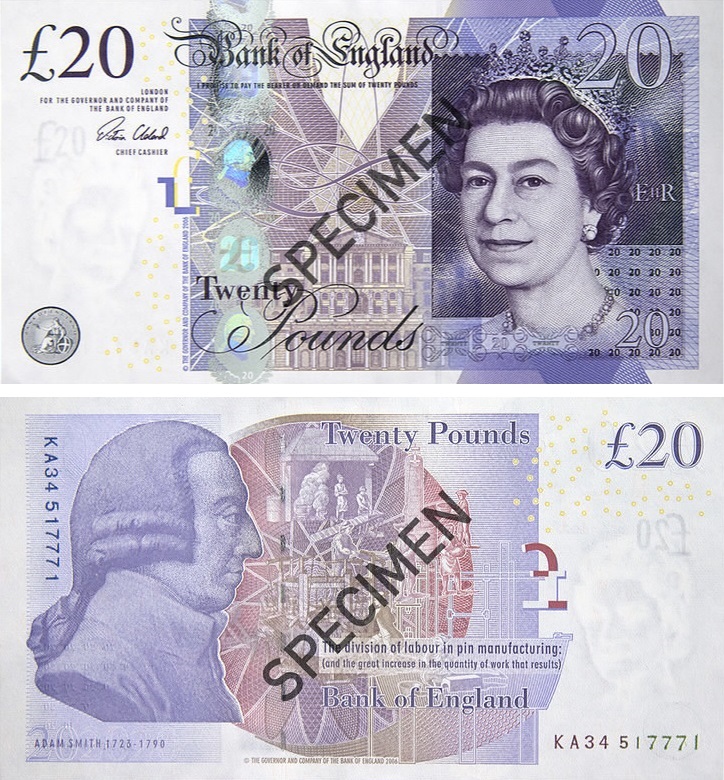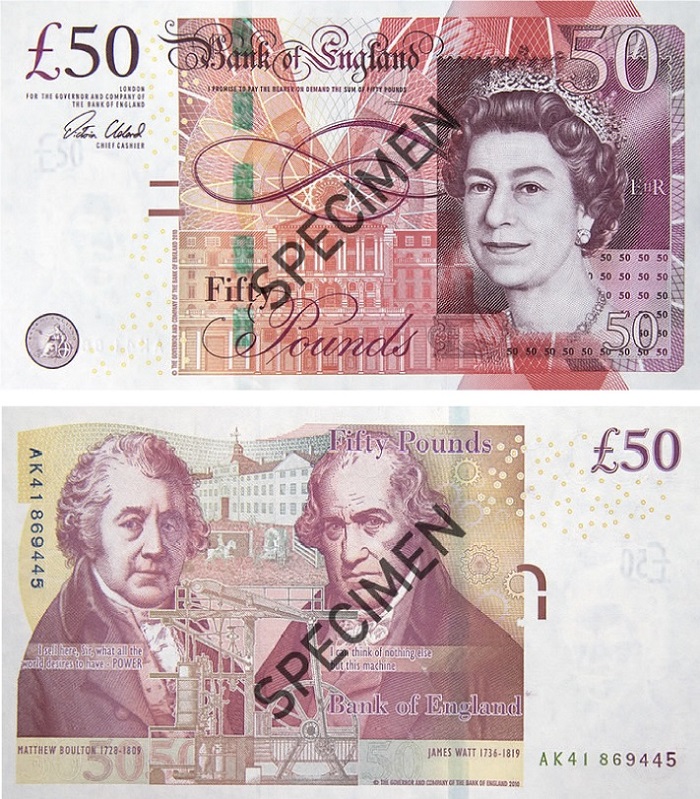
Donegal people who have paper sterling in their possession or have it saved somewhere have been warned that the Bank of England has withdrawn the legal tender status of paper £20 and £50 banknotes as of today, October 1.
Businesses across the border will no longer be accepting these banknotes as payment.
All polymer banknotes carrying a portrait of the late Queen Elizabeth II remain legal tender, and the public can continue to use these as normal in Northern Ireland and over in Britain.
The paper £20 notes issued by Bank of Ireland (UK) plc, AIB Group (UK) plc, Northern Bank Limited (trades as Danske Bank), and National Westminster Bank plc (trades as Ulster Bank in Northern Ireland) have also been withdrawn.

The old £20 sterling paper note
As of today, you will not be able to use paper sterling banknotes of £20 and £50 values. However the following options will remain available:
If you have a UK bank account, you will normally still be able to deposit them at your bank, or into your account at a Post Office.
You can exchange certain withdrawn paper banknotes for polymer notes at a limited number of Northern Ireland Post Office branches.
A new service, and the full list of branches is on the Bank of England website.
You can exchange withdrawn banknotes with the Bank of England, including by post.
Although the majority of paper £20 and £50 banknotes in circulation have been replaced with new polymer versions, there are still over £5 billion worth of paper £20 featuring the economist Adam Smith, and nearly £6 billion worth of paper £50 banknotes featuring the engineers Boulton and Watt, in circulation.
That’s more than 250 million individual £20 banknotes, and more than 110 million paper £50 banknotes.
'Legal tender' means that if a debtor pays in legal tender the exact amount they owe under the terms of a contract, they have a good defence in law if they are subsequently sued for non-payment of the debt.
In practice, the concept of 'legal tender' does not govern the acceptability of banknotes as a means of payment.
Paper £20 notes started to be withdrawn from circulation on February 20 2020, when the polymer £20 entered circulation. Paper £50 notes started to be withdrawn on June 23 2021, when the polymer £50 note entered circulation.

The paper £50 sterling note has also been removed from circulation
Therefore there has been less time to withdraw these paper £50 notes, and more remain in circulation relative to the paper £20 notes.
Paper £20 and £50 notes issued by Clydesdale Bank, Royal Bank of Scotland and Bank of Scotland will also be withdrawn as of today, and these issuing authorities have advised retailers and the public to spend or deposit these notes by that date as well.
The paper £20 notes issued by Bank of Ireland (UK) plc, AIB Group (UK) plc, Northern Bank Limited (trades as Danske Bank), and National Westminster Bank plc (trades as Ulster Bank in Northern Ireland) have also been withdrawn as of today, and retailers and the public are also being advised to spend or deposit these notes ahead of the deadline.
Old series Bank of England notes can be presented for exchange either in person at the Bank’s premises in London, or sent by post (at the sender’s risk) to: Dept NEX, Bank of England, Threadneedle Street, London EC2R 8AH. For further details, please see the Bank of England website.
Subscribe or register today to discover more from DonegalLive.ie
Buy the e-paper of the Donegal Democrat, Donegal People's Press, Donegal Post and Inish Times here for instant access to Donegal's premier news titles.
Keep up with the latest news from Donegal with our daily newsletter featuring the most important stories of the day delivered to your inbox every evening at 5pm.